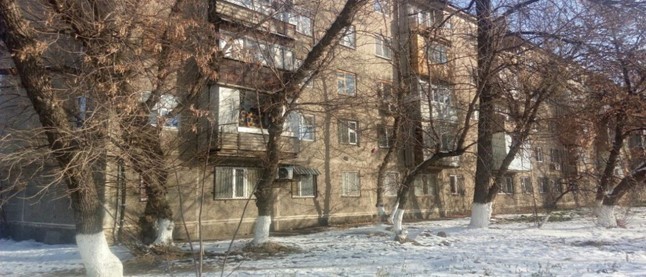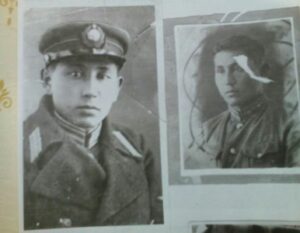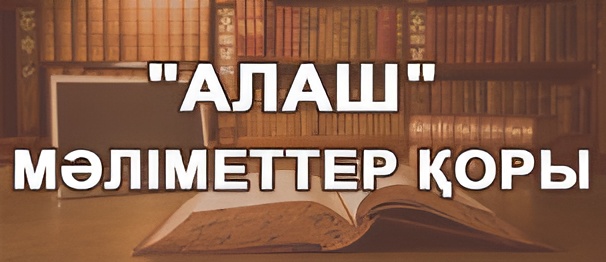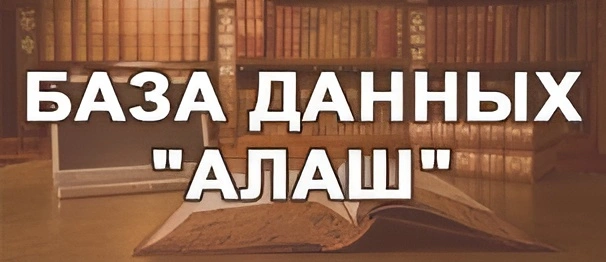Biakhmet Sarsenov’s father, Shigedek, had eight sons and four daughters from two wives. The sons Biakhmet, Zhanakhmet, Khalel, Dalel and Salik were educated people. They studied Kazakh and Russian. It is known that the Sarsenov family actively participated in the Alash movement.

House of Galikhan Sarsenov on Gromov Street, No. 26 in Shymkent.

Galikhan Biakhmetuly Sarsenov

Pilot Galikhan
Biakhmet Sarsenov named his only son Galikhan in honor of the leader of Alash Alikhan. His son was born in 1918. During the Soviet era, Galikhan received the title of “Alashordinets” and “son of a nationalist” and was subjected to pressure and harassment. Orphaned at a young age, Galikhan was raised by his father’s younger brother, Janahmet. In 1925, he graduated from the first grade of the madrasah school. In 1926, he graduated from the 3rd grade of school No. 6 in Semey. With the negative regressive politics of the new time, he was expelled from this school as the son of “Alashordinets”. In 1931-32, Galikhan studied at the city’s irrigation technical school, and in connection with the death of his brother Dalel, he continued his studies at the technical school in Almaty.
In 1934, he studied at two institutes, namely, at the geological exploration department of the Mining Institute and at the Kazakh Journalism Institute . In 1936-39, he studied to become a fighter pilot at the aviation school in Tambov. In 1939, in order to improve his military education, he continued his studies at the Navy and Air Force courses. Due to his father’s active service to the Alashorda government, he was not trusted, and the young pilot was not allowed to fly. Unfortunately, the title of “son of Alashorda” remained with him, and he was not sent to a military unit as politically unreliable. In the 1940-41s, Galikhan served as a flight instructor for a U-2 aircraft in an aeroclub. His military rank was captain.
The talented young man graduated from the correspondence department of the French, English and German Languages Department of the Moscow Institute of Foreign Languages in 1940. As a linguist, he spoke English, French and German fluently.
During the war, he was captured but managed to escape. Galikhan participated in combat operations as part of the Resistance Front fighters in Holland. After the end of the war, from August 1945, he worked for three years as a translator of German, French and English languages in the territory of Holland (Netherlands) in a special group created by the Soviet government in the cities of Amsterdam, Rotterdam and Utrecht. The main task and goal of this group was the return of Ukrainians and Belarusians to the Soviet Union, as well as prisoners of war from death camps who were forcibly recruited by Nazi Germany during World War II.
He made a great contribution to the repatriation of Soviet prisoners of war. In 1945-48, he worked as a translator and consultant in one of the international commissions for the return of prisoners of war to their countries. During this period, he met Princess Ioke Mulderas, the middle daughter of the former king of the Netherlands, and by the will of fate, he married her. From this marriage, in 1947, a boy Herat (Herat) was born.
Journalist J. Kanapina (Informburo) in her article “Turkestanis in World War II: from captivity to resistance” gave preserved information of Doctor of Historical Sciences, Professor G. Mendikulov from the French archives about the marriage of Galikhan Sarsenov and the middle daughter of the King of the Netherlands.
This information is recorded and confirmed by Galikhan Biahmetuly in his autobiography, personally filled out on June 9, 1995.
However, he does not provided any information about his activities in the 1940-45s, but he wrote that he was a veteran of the Great Patriotic War.
The fact that he was awarded 8 orders and 13 medals speaks volumes. It is known that it is impossible to receive them in peacetime. It is quite possible that he was a Soviet secret –service agent during the war.
Later, Sarsenov learned that his brother Alikhan had been imprisoned by the NKVD. Perhaps Sarsenov believed that it was because of him that his brother was in the prison. So he decided to leave the Netherlands and return to Kazakhstan.
In 1948, he wanted to take his wife and child into the country. His wife Ioke with a small child could not cross the border because she was a foreigner, and unfortunately she had to return. Thus, the Soviet authorities did not allow him to take Ioke and his son with him.
A few years later, in Shymkent Galikhan Biakhmetovich met a Russian Anna Dubova and married her. Three sons were born in this marriage.
He wrote about his family that his first son died in 1992, the second son died at the age of 21 (born in 1971), the third son lived with his mother in Russia, in Tver.
After arriving in the country, Galikhan Biakhmetuly worked as a foreign language teacher in comprehensive schools and as a journalist in newspapers in the South Kazakhstan region. He retired in 1977.
Interestingly, in the late 1950s, Galikhan received a notice from a foreign embassy in Moscow. He was invited by his wife, Joke, and son, Herat, who remained in Holland and came to Moscow as part of an international delegation. He explains that he was unable to come to Moscow by saying that he was ill. Possibly they could not see each other due to the lack of official permission from the government.
From the personal archive of Janahmet’s grandson, Amirtai Alimkhanuly, who lives in Semipalatinsk, it is known that Galikhan lived in the Abay district of Shymkent.
Biakhmet’s only son, who had a difficult fate, died in Shymkent in 2000 at the age of 82.
Literature:
Kenemoldin M. Veteran of Alash – Biakhmet Sarsenov // News of Astana. – 2007. – August 7. – P.4
Kenemoldin M. Abai, whom the country spoiled like Biyash. – 2006. – No. 3. – P. 36-41
Akkali A. The only heir of Biakhmet // https://abai.kz/post/63964
Abramova Yu. “Fell in love with a Frenchwoman”: how the Kazakhs fought against Hitler in Europe // https://www.nur.kz/society/1774008-vlubilsa-vo-francuzenku-kak-kazahi-voevali-protiv-gitlera-v-evrope/



